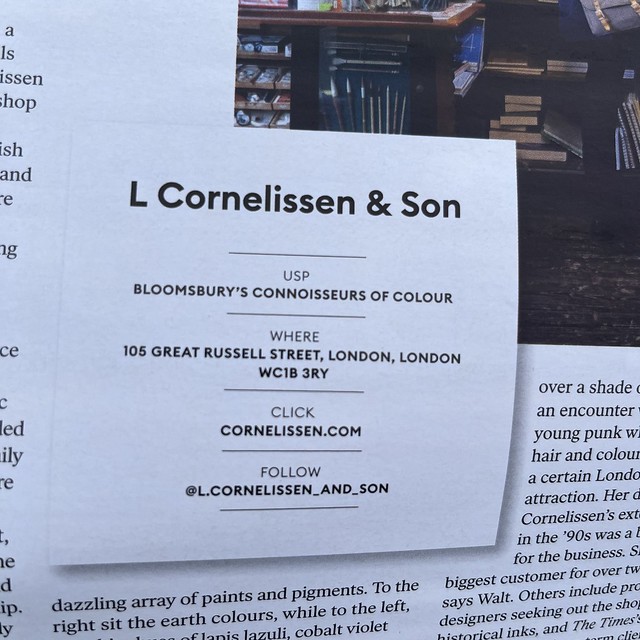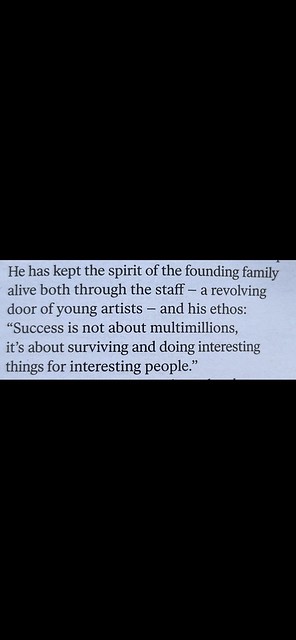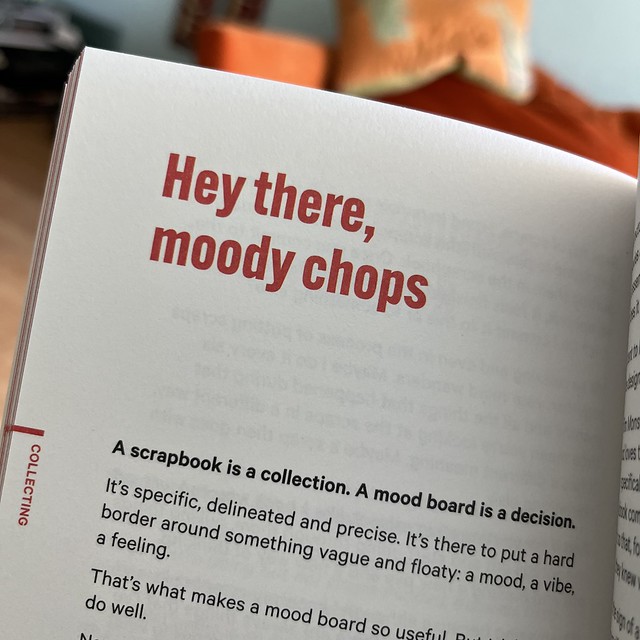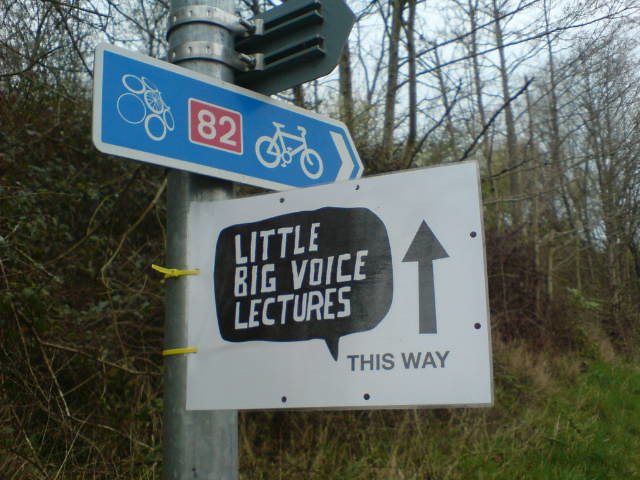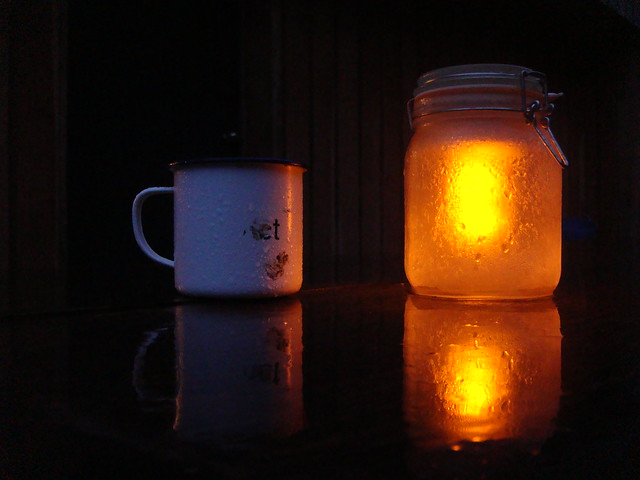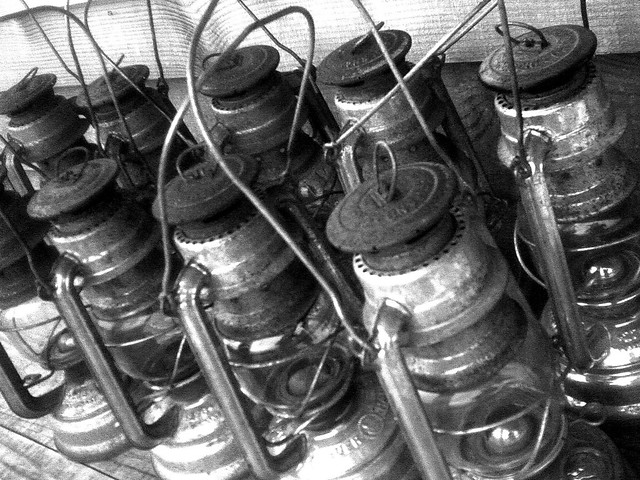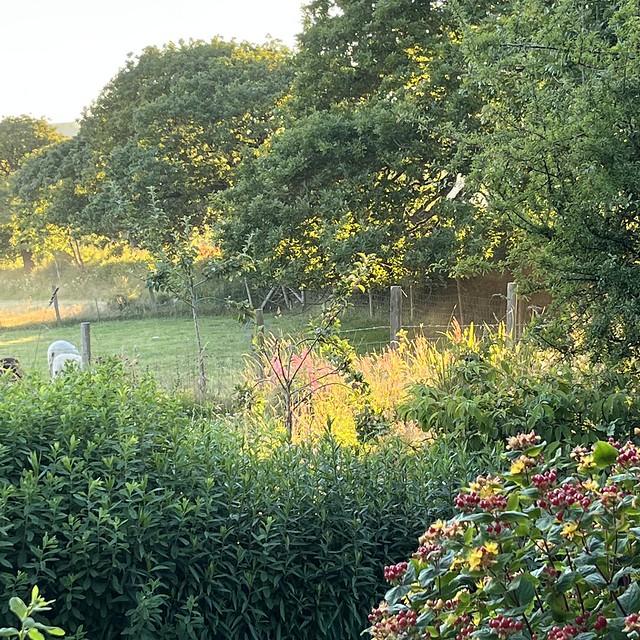A piece in today's FT magazine reminded me that I wrote about L. Cornelissen in the long version of the Do Interesting book. It's still in there but it got trimmed a lot. It's below.
And there's this lovely little quote from the owner.
Here's the piece. This version's also better because it's got a longer interview with Navaz...
There’s a shop called L Cornelissen and Son. They’ve been selling art supplies in London since 1855.
The place sells colour like a Harry Potter shop might sell magic; like a mediaeval library for paint and papers.
And they’re indirectly responsible for billions of pounds of commercial creativity, because generations of advertising art directors and copywriters get their particular large, green scrapbooks from L. Cornelissen.
Advertising creatives have particularly well honed habits when it comes to the production of interesting ideas. They do it on demand. For money. They know, more than almost anyone else, that you can’t rely on inspiration.
So they collect and collect and collect.
Images, photography, illustrative styles, bits of type, overheard speech, fragments of idea, other ads, anything that grabs their eye.
None of it with any real purpose other than one day it’ll come in handy. (And this is one place where the industry's reputation for kleptomania comes from.)
Everyone in an advertising agency has seen it: late at night, ‘the creatives’ stuck on a project, desperately leafing through their scrapbooks looking for the image, or the juxtaposition of images, that’ll light up their brief.
And then, even later, sneaking into another creative team’s office to see what’s in their scrapbooks.
This is where most of the best ads in the world have come from.
Follow their lead. Collect stuff that catches your eye. Stick it in a book. Flick through when you’re looking for ideas. You can do it electronically but paper really helps. You develop a sense memory for where a particular idea sits, you get the unexpected connections and happy accidents of adjacent pages, you get something to do with your hands when you’re thinking, and something to share with your work partner.
Maybe physical scrapbooks work by being tools for what the psychologist Ellen Langer calls ‘soft openness’
“What you want is a soft openness—to be attentive to the things you’re doing but not single-minded, because then you’re missing other opportunities.”
And it’s not just advertising creatives who love scrapbooks. Fashion people are the same.
Navaz Batliwalla is an editorial consultant, author, stylist and fashion blogger. I talked to her about her creative habits.
“Yeah, I have scrapbooks and I've been doing scrapbooks since I was a student. I'm like a scrapbook myself. I'm very hybridy. Taking things from different places and then hatching them together in whatever context.
I love collage and when I went to college I actually wanted to be an illustrator. The course was called fashion promotion, illustration, and photography. The course was like a collage itself.
One of my good friends at college was into collage and he made these beautiful scrapbooks. And I got this really amazing one with different coloured papers, it was massive and quite expensive so I just keep stuffing and stuffing and stuffing.
So now I’ve got to the point where they're completely overstuffed and now I just use boxes and carrier bags. Bags full of scraps and it's really relaxing, putting the scraps together because that's when you start making connections.
I tend to revisit them all the time. And I tend to play with the scraps rather than actually putting them in the scrapbook. Once you commit to the scrapbook, it’s like I’ve finished something. I've made this lovely piece of art. So you are torn. How do I use this? Do I commit it to this or do I commit to something else?
It's so relaxing and even the process of putting straps together, your mind wanders. Maybe I do it every six months and all the things that happened to you in your life in six months means that you're looking at this piece in a different way. It means something completely different. It then goes with something else.
And if I'm starting a big project, like a book, you can just get the scrap out or get the box of sheets out and just start going through them, pulling things out and making a new pile and a way of thinking.
It's a way of easing yourself into the subject and it's amazing because although I know my scrapbooks and my boxes quite well now, there's always things that you've forgotten about. Something that you kept not knowing what it'll be for.
Also, when you look back through your scrapbook you find, oh, there's some themes in here which maybe you didn't know you were interested in to start with.”
